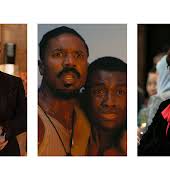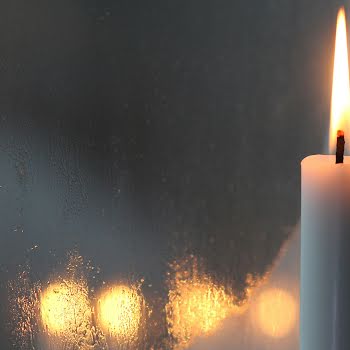By Rhona Mcauliffe
30th Sep 2020
30th Sep 2020
Rhona McAuliffe offers advice to a reader who can’t find work-life balance.
Dear Rhona,
I’ve always been ambitious. From the start of secondary school I knew what I wanted to do and I’ve made a lot of sacrifices to get here. Rather than go travelling after college, I immediately started a graduate programme with a well-known multi-national and worked my way up via a couple of stints in London and New York, where I ultimately burned out, often working 15-hour days.
For that reason, I moved back to Dublin, finding a job in a company I hoped would allow me to have a better work-life balance. The irony is, I’m now at a point of being under more pressure than ever, with fewer resources and no support. There’s a huge expectation for me to perform but I just can’t keep on top of everything. I’m working 12 hour days, too tired to go to the gym, cook or see friends during the week and often work on projects over the weekend to try to keep up with it all but it’s never enough.
My boyfriend, who has tried to be understanding when I’m too wrecked to go out, rarely home in time to eat together and constantly on edge, is starting to kick off too. He thinks my boss – who contacts me day and night and expects everything now, now, now – is totally unreasonable and that I am her ‘mule.’
I’ve only been at my new job nine months so don’t feel like I can drop the ball but it’s driving me, and my relationship, into the ground. Meanwhile, I feel like whatever I’m doing is not enough and am starting to question my value to the company. I know I need to look after myself and listen to my boyfriend, who is genuinely looking out for me but I also need to keep my job.
Losing My Perspective, Dublin.
The first thing to put out there is that this game that you’re playing, that most of us are caught up in, is 100% rigged. You will never, ever mount your endless pile of tasks, flag in hand and declare: I did it, I have completed all the things and now my job is done.
We’ve bought into a complete rouse, not helped by the fact that we are always ‘on,’ invaded by 24-hour texts, emails and WhatsApp voice notes. And because we think that we can do it all – or are expected to do it all – we try to absorb the fire hose of information aimed at our brains, listing our to-do’s as we go; while simultaneously having a conversation with a colleague, stuffing a bagel into our faces and emailing a client. This new state of being is called ‘continuous partial attention’ and is next level multi?tasking. The problem is, working like this means it takes 30% longer to get the job done with minimal satisfaction.
This feeling of being completely overwhelmed and ultimately demotivated is worst when you are beholden to a boss whose expectations are unrealistic or in many cases, humanly impossible. You have the benefit, believe or not, of one burn?out behind you, which means you have hopefully recognised the signs a second time, which I’m imagining is why you’ve reached out? Taking back some control and establishing firm boundaries is essential to work towards any semblance of a work-life balance, which is not a myth! Some companies in the US are now even offering employees incentives to take their full holiday allocation and not answer emails after hours as they’ve realised it heightens morale and improves productivity long-term.
You could start by taking a couple of days off to assess what needs to change. The 12-hour working day is not sustainable, that’s a given. Working smarter, not longer, is the ideal model meaning you might only answer emails between 10 am and 12 pm, turning your notifications off for the rest of the day, for example; you might decide that only two of the eleven weekly meetings you attend are worthwhile; you politely say ‘no’ to a request when you are at capacity or negotiate a more realistic timeline. You leave work on time and maybe start an hour earlier to feel like you are set for each day. There’s a simple but smart list here.
Booking a session with a life and career coach would be a really good idea at this point. Sarah Doyle of thebetterlifeproject.ie, who comes highly recommended, does 12?week mentorship programmes as well as one?off coaching consultations. A life coach will help you to prioritise what’s important, engineer your own destiny and break toxic cycles.
In André Agassi’s brilliant autobiography, Open, he writes about how his professional life was mapped out from birth. Instead of a mobile, dangling wooden zoo animals over his crib, he had a set of tennis balls, with ping-pong paddles taped to his wrists so he could try to swat them. He worked relentlessly to become one of the most successful tennis players of his generation, but he detested it, mainly due to his father’s unrelenting ambition. He wrote: “I play tennis for a living even though I hate tennis, hate it with a dark and secret passion and always have.” Agassi’s Dad is an extreme example but highlights the importance of setting your own goals. Even if you did determine your original path, maybe it’s time to reevaluate and make sure you’re still on track?
As we move way beyond jobs?for?life and edge towards habitual side hustling – as deconstructed in Emma Gannon’s excellent book, The Multi-Hyphen Method adaptability and a state of constant flux will be the new order. Which means knowing yourself ? how you work, what you value, the skills and experience you offer – will be essential in managing your time, output and job satisfaction moving forward. If you’re a high achiever with inflexible personal standards – and that sounds like you! – you’ll initially find it very difficult to leave work behind you and prioritise your well? being but that’s exactly what you need to do. That means binning perfectionism, it really is a weakness! If your boss doesn’t get it maybe this is not the job for you right now.
I also always think of Bonnie Ware’s bestselling book, The Top Five Regrets of the Dying, when I think about work life balance. Ware was working as a palliative care nurse in Australia, caring for the dying in the last few weeks of their lives. While doing so, she asked each of them if they had any big regrets and there were five freakily common answers. Guess what number two on the list is? I wish I hadn’t worked so hard.























